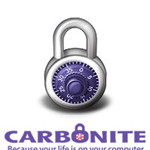Month: March 2012
Battle Road Research Announces Small Cap Snapshots
PRESS RELEASE
For Immediate Distribution
Monday, March 26, 2012
Battle Road Research Announces Small Cap Snapshots
A New Service focused on Scouting Out Small Cap Ideas
(WALTHAM, MA) Battle Road Research (www.battleroad.com), an independent stock research firm focused on the technology and consumer sectors, has announced Small Cap Snapshots, a new service designed to help fund managers and analysts scout out small cap ideas. The initial focus will be on companies located in New England, with stock market valuations under $1 billion.
“We see a growing number of intriguing small cap companies in our backyard and beyond that have been overlooked by Wall Street and regional investment banks,” according to Ben Z. Rose, President of Battle Road Research. “A second group of companies consist of IPOs from the last two years that have fallen off the radar, or may have little coverage outside of the investment banks that took them public. These companies represent fertile ground for a fresh, independent perspective. We believe that Small Cap SnapShots will be a timely addition to our clients’ research process,” said Rose.
Combining fundamental research with key financial metrics, Battle Road’s Small Cap Snapshots are designed to help fund managers and analysts screen for investment ideas in the technology and consumer sectors. Small Cap Snapshots are available immediately to Battle Road Research clients through its website at www.battleroad.com. A formal launch of the service will take place on Patriot’s Day, Monday, April 16.
Established in 2001,Battle Roadis a research-only firm, not an investment bank, not a broker dealer, and not an asset manager. Unlike Wall Street and regional investment banks who are paid by the companies they research,Battle Roaddoes not accept –nor has it ever accepted— a dime from any company that it researches.
“As we set out in search of investment ideas for our clients, the company management teams with whom we meet will know that we are not seeking a quid pro quo for research coverage. Specifically, we are not interested in placing our name in the hat for future public offerings, lining up convertible debt, or pitching M&A ideas. These are services provided by the investment banks,” said Rose.
“Our research has been battle-tested for ten years in the institutional marketplace by some of the world’s leading portfolio managers and analysts. We are confident that Small Cap Snapshots will help our clients seek out new investment ideas, and will further our reputation as a research firm free from the influence of investment banking,” Rose concluded.
About Battle Road Research
Battle Road Research, an equity research firm, provides an independent voice on technology and consumer stocks. Our research process combines rigorous financial analysis with insights gleaned from industry sources. Since our inception in 2001 we have refrained from investment banking, company-paid reports, and personal investment in the stocks we research. Battle Roadhas been a member of the Investorside Research Association since its inception in 2002. Investorside monitors and certifies that its members do not perform investment banking or research for hire, thus avoiding the conflicts of interest elsewhere rampant within the equity and fixed income research business. For each of the last three years, Battle Roadhas received an award for its research coverage from Investorside, including the Thought Leadership in Technology award.
We welcome investors to visit our website at www.battleroad.com
Media Contact:
Ben Z. Rose, President
Battle RoadResearch
781-894-0705, ext. 204
Carbonite: Cloud-based Backup Leader
 Data backup, storage, and recovery systems, once affordable for only the largest corporations and elite government agencies, are now accessible to mid-sized corporations, small businesses, and every day PC users. The sea change has occurred largely as a result of falling storage costs. Six years ago, the storage cost per gigabyte (GB) was $10.00. The price fell to $4 per GB in 2008, and to $2 per GB in 2011, according to data gathered by IDC. As an insurance policy against hard drive failure, accident, and theft, low priced hard-drives, flash drives and discs have become common for consumer and small business data back up.
Data backup, storage, and recovery systems, once affordable for only the largest corporations and elite government agencies, are now accessible to mid-sized corporations, small businesses, and every day PC users. The sea change has occurred largely as a result of falling storage costs. Six years ago, the storage cost per gigabyte (GB) was $10.00. The price fell to $4 per GB in 2008, and to $2 per GB in 2011, according to data gathered by IDC. As an insurance policy against hard drive failure, accident, and theft, low priced hard-drives, flash drives and discs have become common for consumer and small business data back up.
The falling cost of storage has made it compelling for consumers to store more data on their computers, including storage intensive media, such as pictures and videos. At the same time, the proliferation of mobile computers, including laptops, notebooks, netbooks and tablet computers, coupled with smart phones have created a need for more frequent backup, as the probability of loss or theft has risen significantly. 247 million laptop, notebook and netbook computers were shipped around the world in 2010, along with 146 million desktop PCs, according to market researcher IDC. Tablet PCs have quickly arisen to contribute another 10 million –plus units annually.
The rising use of the internet for all things digital, and the increasing trust that consumers and small businesses place in cloud computing, with its data encryption technologies and storage on remote servers located in often far away data centers, has created a new market for data backup, based in the cloud, and accessible at an affordable price.
Carbonite’s initial focus and by far the lion’s share of revenue that drives the business today is the home-based Windows and Mac market, where consumers pay a nominal $59 per year fee for an insurance policy against the aforementioned risks. Competition is widespread in this market, with some companies offering free storage, or storage bundled with other products. Nevertheless, Carbonite has developed a series of competitive advantages based on its brand awareness, which emphasizes trust, as well as its technology infrastructure, and, thus far, management execution.
Carbonite has many competitors in both the consumer and small business segments, as the barriers to entry to the market are quite low. However, just like in the early days of cloud-based salesforce automation, when Salesforce.com amassed a large market position based on the simplicity of its solution, combined with strong sales and marketing, so too does Carbonite have the opportunity to gain share in its addressable market, despite the existence of many competitors at this stage of the market’s development.
In the consumer market, Carbonite faces competition from a large number of little known players, as well as large behemoths, that have seized upon data storage as a way to keep customers in the fold. Thus, Apple, through its iCloud service, Microsoft, through its SkyDrive service, and Amazon.com, for its Kindle Fire tablets, is bundling free storage services with their products. While this poses a threat to Carbonite’s rate of growth, the company’s affordable, easy to access service, which emphasizes backup and restore –not just storage—across multiple computer platforms, should enable the company to achieve solid growth.
In the small business market, competitors include Symantec, McAfee (now a division of Intel). Both companies bundle backup and restore capabilities into their security software suites, but the products are not easily accessed, and are often difficult to use. EMC’s Mozy division delivers cloud-based backup, and currently serves over 70,000 small businesses through its subscription-based services. While EMC has made more than a symbolic entry into the cloud-based backup and storage market, the company continues to derive the lion’s share of its sales from large disk storage systems which it sells to large corporate customers that utilize their own data centers, rather than harness storage in the cloud. Rackspace Hosting also competes in the market, and other competitors include Dropbox, Box, CommVault, Databarracks, and Zamanda.
With its new $229 and $599 small business backup service, Carbonite will be quite competitive with other small business offerings on the market, including those offered by Mozy, Backblaze, and DropBox. The Carbonite offerings will be anywhere from 20 to 75 percent less than equivalently packaged configurations from these competitors, based on current prices.
